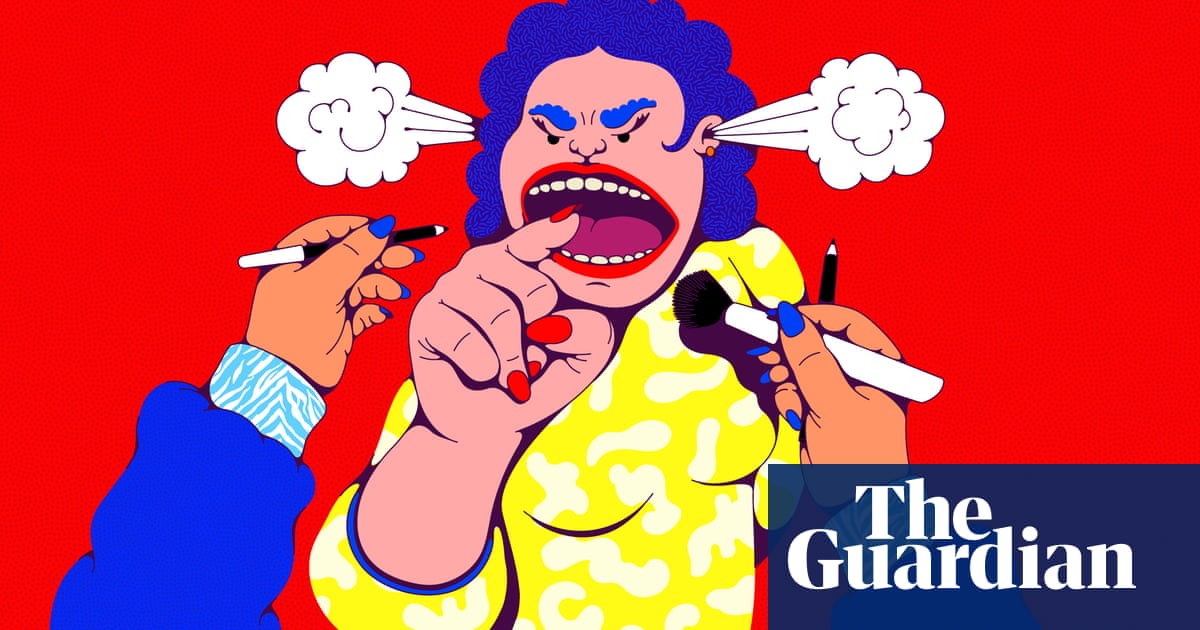
first read Morvern Callar when I was about the same age as the eponymous heroine, living in Glasgow, depressed and increasingly isolated. A rare friend came to visit and gave me the copy of the 1995 novel I still own – a red-toenailed foot on a deep blue background, and a coy blurb on the back that gave me little warning of what I was letting myself in for (“What she does next is even more appalling …” OK!)
I read it feverishly on my breaks at the chain coffee shop where I worked. At the time I felt strongly that I was failing at most things, including the very basic acts of living. In my spare time I flailed towards something by sporadically writing. My stories were populated with neat, functional characters, characters you could root for. Their goodness was signposted from the get-go; they “deserved” the happy endings that, increasingly, I didn’t feel I did.
So I was struck then by the inscrutable Morvern, who blindsides us from the start. She narrates Alan Warner’s novel, and yet we rest glacially on the surface, often literally – she’s more likely to describe in detail the painting of her nails than her feelings. Her focus on her physical self has been criticised as that of a male writer trying to imagine the bodily preoccupations of a young woman, or taken as a comment on the blank-eyed capitalistic ennui of young people in the 90s – so dead inside! – but I now read it more as emphasising the boundaries between Morvern’s mysterious internal world and her external. Her self-containment cannot be breached for long. Events from the mundane to the horrific are narrated with equal calm, brand names scattered here and there. The levelling effect is disconcerting.
I grappled with just who Morvern is as a character then, and I grapple now. My interpretations depend on where I am with my life, which is part of the enjoyment. I am not the same person or reader I was at 22. She could be read as opportunistic grifter, tragic orphan, hedonistic sociopath. She’s alternately reticent, or dignified, or vacuous. The world slides off her.
The inaccessibility can be maddening but I respect it. Maybe there’s a void of emptiness inside her; maybe not. Maybe she feels nothing, or simply doesn’t have the capacity to articulate her trauma. It’s not for us to know, and realising that, accepting that, changed everything for me. We, the readers, are just going along for the ride. What a concept – to abdicate control. Ambiguity holds power. Nothing is certain and everything is in flux.
To read a book where you are always kept at such remove, a rubber-necker rather than a participant, can be frustrating. We’re not always comfortable, as readers, with not being given the whole picture. We want satisfying conclusions and reasons. We’re consumers! But sometimes things happen as they happen. Sometimes people make appalling decisions and stick to them. Sometimes people do not show remorse, or even feel it.
The characters in my own writing are not easy to like. I’ve seen them described as hysterical, exasperating, cold (I agree), and their motives questioned because they don’t always act logically (I agree too). We are actually all of us so often so deeply illogical, driven and compelled by desires that can be absurd at best and dangerous at worst.
In Morvern Callar, the protagonist makes an understandable choice, in a way: Morvern’s writer boyfriend kills himself – so she later successfully publishes his book under her own name. It’s just not a morally accepted choice. And yet it hurts nobody. It propels her into her own self-realisation. So is it so wrong? Actually, it’s good. Maybe? The moral gymnastics here are queasy. They’re also, darkly, quite good fun.
Badly behaved heroines are more celebrated now, but they still generally have to be made palatable with charm, or an explanation. They still operate within recognised moral codes. They might get their comeuppance. Morvern, though, reminds me that doesn’t need to be the case. She remains gloriously strange. She’s laconic, strangely innocent, drifts along under her own logic with no discernible masterplan. At no point is she punished, or even at risk of being punished, for her actions. And the only place where she does let us in, in the end, is not through eventual regret, but through small moments of joy. In the feel of sun on skin. In landscapes both Scottish and Spanish, the anonymity of a rave. In the music she listens to constantly through her Walkman, soundtracking her every move, highlighting her dissociation even as it provides us with a way to get in closer. She doesn’t question this joy. She doesn’t have to do anything to earn it. It’s just there for her, if she looks closely.
It’s a novel that taught me about control, about the space of what’s underneath a story and what can be left unsaid. About our capacity to root for a character who is, seemingly, totally amoral. And it also taught me there was artistic, even aesthetic, value in my grey little life; things I could use and transform.
In the novel, cheap Mediterranean hotels and supermarkets are given a gravity and poetry. The world itself starts to feel like a dream – there are no consequences, ugliness metamorphoseses into something more transcendent. There is a surreality to elements like the sinister resort bar where you can pay for your beer in blood, the glitter left in Morvern’s knee from an accident, a nightmarish swimsuit-swapping competition. It’s our world, but it’s not, because when the moral code is upended, questioned, anything can happen. And in the gaps ambiguity creates, beauty can rush in.
• Sophie Mackintosh’s debut novel, The Water Cure, was longlisted for the 2018 Man Booker prize












